Request a video call
Confirm Your Virtual Consultation
Memorial Hizmet Hastanesi Profile Overview
2000 yilinda hasta kabulüne baslayan Hizmet Hastanesi, kaliteli saglik hizmetinin adresi olan Memorial Saglik Grubu tarafindan yönetilmektedir.
Memorial Hizmet Hastanesi, bilimsel ve teknolojik gelismeleri yakindan izleyen, deneyimli hekim kadrolari, ileri teknoloji ürünü cihazlar ile gelistirilen teknolojik alt yapisi, yenilenen hasta katlari, hasta odalari, poliklinikleri, laboratuvarlari ve görüntüleme merkezi ile hastalarina güvenli bir ortamda tedavi olmanin rahatligini yasatmakta ve üst düzeyde saglik hizmeti sunmaktadir.
Merkezi lokasyonu ile hastalarin her an ulasabilecegi bir konumda yer alan Memorial Hizmet Hastanesi; 11 bin m²'lik kapali alani, 114 yatak kapasitesi, 4 ameliyathanesi, 120 kisilik konferans salonu ve 150 araç kapasiteli otoparki ile yerli ve yabanci hastalara dünya standartlarinda saglik hizmeti sunmaktadir. Acil servis bölümünde de, deneyimli ve dinamik hekim kadrosu ile 5 müsahede yatagi, 1 müdahale odasi ve tam donanimli 1 ameliyathane ile 24 saat hizmet verilmektedir.
BÖLÜMLERIMIZ
-
Acil Servis
-
Agiz ve Dis Sagligi
-
Anestezi ve Reanimasyon
-
Beslenme ve Diyet
-
Beyin ve Sinir Cerrahisi
-
Check up
-
Çocuk Sagligi ve Hastaliklari
-
Dahiliye
-
Dermatoloji ve Kozmetoloji
-
Diyaliz merkezi
-
Endokrinoloji ve Metabolizma Hastaliklari
-
Estetik, Plastik ve Rekonstrüktif Cerrahi
-
Fizik Tedavi ve Rehabilitasyon
-
Gastroenteroloji
-
Genel Cerrahi
-
Gögüs Hastaliklari
-
Göz Hastaliklari
-
Hematoloji
-
Invazif (Girisimsel) Kardiyoloji
-
Kadin Hastaliklari ve Dogum
-
Kalp ve Damar Cerrahi
-
Kardiyoloji
-
Kulak Burun Bogaz Hastaliklari
-
Nefroloji
-
Nöroloji
-
Obezite cerrahisi ( Bariatrik cerrahi )
-
Organ Nakli Merkezi (Böbrek Nakli)
-
Ortopedi ve Travmatoloji
-
PsikiyatriPsikolog
-
Saç Nakil Merkezi
-
Üroloji
Konsültan Bölümlerimiz
-
Pediatrik Hematoloji
-
Pediatrik Kardiyoloji
-
Pediatrik Nefroloji
-
Pediatrik Romatoloji
-
Pediatrik Üroloji
TESHIS VE TEDAVI ÜNITELERIMIZ
Kardiyoloji
-
EKG
-
Ekokardiyografi
-
Efor(Treadmill) Testi
-
Tansiyon ve Ritim Holter
-
Anjyiografi
-
Radial (Koldan) Anjiyografi
-
Balon, Anjioplasti ve Stent Uygulamalari
-
Geçici Kalp Pili Uygulamalari
-
Akut Miyokard Enfarktüsünün(Kalp Krizi) Acil Girisimsel tedavisi
Endoskopi
-
Gastroskopi
-
Kolonoskopi
-
Sigmoidoskopi
-
Rektoskopi
-
ERCP
Görüntüleme Merkezi
-
1,5 Tesla MR(Manyetik Rezonans)
-
BT(Spiral Bilgisayarli Tomografi)
-
Girisimsel Radyoloji
-
Renkli Doppler Ultrasonografi
-
Ultrasonografi
-
Mamografi
-
Röntgen (Direk, Fluoroskopi,panaromik)
-
Kemik Yogunlugu Ölçümü
Laboratuvar
-
Biyokimya
-
Mikrobiyoloji
-
Immünoloji
-
Patoloji
Nükleer Tip Ünitesi
-
Tiroid Sintigrafisi
-
Myokard Perfüzyon Sintigrafisi(Talyum Testi)
-
Tüm Vücut Kemik Sintigrafisi
-
Dinamik - Statik Böbrek Sintigrafileri
-
Diger Sintigrafik Incelemeler
Yogun Bakim Üniteleri
-
Genel Yogun Bakim
-
Kardiyovasküler Cerrahi Yogun Bakim
-
Koroner Yogun Bakim
-
Yeni Dogan Yogun Bakim
Diger
-
EEG
-
EMG
-
Solunum Fonksiyon Testi
-
Alerji Testleri
-
Vücut kitle indeksi Ölçümü
-
Bazal Metabolizma Ölçümü
-
Lazer Epilasyon
Daha fazla bilgi almak için burayı tıklayınız.
Memorial Hizmet Hastanesi, Istanbul, Turkey Profile Details
Memorial Hizmet Hospital
E-5 Yanyolu Üzeri
Bahçelievler Mah. Günes Sok. No:4
Bahçelievler - ISTANBUL
Tel : +90 212 557 70 70
Other Memorial Locations:
Memorial Sisli Hospital (main campus )
Memorial Hospital is the first health services project of the Memorial Health Investments Corporation founded in 1995. Memorial hospital received its first patient in February 2000.
Memorial hospital has a very prestigious reputation in areas like cardiology, cardiovascular surgery, organ transplantation, IVF and genetics and provides high quality health care services in every medical specialty.
Memorial Hospital provides high quality healthcare services on international standards to its local and international patients with its 53.000 square meter closed area, 200 bed capacity, parking lot (10.000 square meter and 300 car capacity), central automated system, pressure support system to control temperature and humidity, pneumatic tube transfer system and 120 people capacity conference room
Memorial Atasehir Hospital
Memorial, who is acting with the mission of "Being able to furnish its first class medical service which is ethical, deserves its value and has a quality at global scale, to the service of greater populations each year", is progressing in this direction step by step everyday with the devoted efforts of its employees. Following Istanbul Memorial Hospital, Etiler Memorial Hospital, Suadiye Memorial Medical Centre; Memorial Health Group continues to work for new locations after growing even stronger with Memorial Atasehir Hospital.
Memorial Atasehir Hospital which enforces its operations by being integrated to the main campus of Memorial Hospital, is an organization with 130 inpatient beds which furnishes services at an area of 18.000 square meters in total as the hospital.
Our centre which meets the ever increasing medical requirements of the rapidly growing region in Memorial quality, is aiming to reply to the emergency patient requirements of the region with it easy access.
Memor?al Antalya Hospital
MEMORIAL, Pearl of The Mediterranean Sea, is in Antalya
Memorial which pioneers the quality in health services in Turkey; achieves dazzling developments in private health sector thanks to its medical, academic and technologic opportunities is in capital city of tourism, Antalya.
MEMORIAL is in Antalya!
Memorial Health Group which contributes to cure of hundreds of thousands patients each year brings its perfection standards in health services to Antalya by Memorial Antalya Hospital.
Memorial Antalya Hospital is a world hospital thanks to its superior technological facility, internationally recognized and powerful team of doctors, perfect and efficient patient care.
Memorial Antalya Hospital, established on a 15 thousand-square meter-area and having a medical and administrative cadre of 400 people, is serving not only Antalya but all the Mediterranean Region and became the address of health services of high quality along with 132 sickbeds, 4 intense care units, 28 intense care beds and 5 operation rooms which provides advance service inspired by the most recent technology.
By PACS system which provides a hospital without filming, the radiology department equipped by the advanced devices, MR and BT rooms, intensive care units which provides the patients the perceptions of day and night, Coroner Angiography and Angioplasty service as well as the policlinics which are decorated influencing the psychology of patients in a positive way, the patient rooms and modern architecture, Memorial Antalya Hospital provides its patients both quality and comfort.
In Memorial Antalya Hosptial in which the world-famous academic staff of the hospitals in Istanbul will attend seasonally, thanks to the PACS system (the hospital without filming feature) the imaging and laboratory results are shared and thus a medical synergy prevails.
da Vinci, Following Istanbul and Ankara, is Now In Antalya!
‘da Vinci Robotics’ which is recognized as the latest technological advance in the medical world and is utilized in especially important centers in the USA as well as all over the world, is in Antalya after Istanbul and Ankara.
'da Vinci' is utilized in many branches especially in urology and gynecology in the da Vinci Robotics Surgery Center of Memorial Antalya which is the first and the single robotics surgery center in the Mediterranean Region. Memorial Antalya Hospital, the third hospital of the Memorial Health Group which is the leader in health services of high quality by acquiring the JCI Certificate of Accreditation that determines the international standards, by becoming the first hospital admitted to the American Hospital Association (AHA) for the first time while admitting patients from 65 countries of the world, is also an important center in terms of health tourism.
Memorial Antalya Hospital, located in the Centrum of Kepez, being accessible easily and close to the holiday towns, the airport and the bus terminal, is in the service for every branch in 7 days and 24 hours along with the experienced academic staff, the cheerful employee and superior infrastructure and technological equipment.
Memorial Etiler Medical Centre
Our goal at the Memorial Etiler Medical Center is to provide accurate, fast and economic diagnosis and treatment opportunities for all digestive system related diseases. Our Clinic is fully equipped with state of the art medical devices Monitoring Units, Endoscopic systems ERCP, Motility and Laser treatments are being successfully performed by our medical team of doctors who have an academic career and who are internationally experienced.
We are the fist Medical Canter in Turkey to perform the "Double Balloon" endoscopy that allows endoscopic observation for the entire small intestine. We are proud of bringing this new technology which is available in a few centers in the world.
Memorial Etiler Medical Center will constantly follow the latest developments in its field and will start implementing them in Turkey.
Medical Procedures
Healthcare Services provided by Memorial Etiler Medical Center are listed below:
- Small intestine endoscopy (first double balloon endoscopy in Turkey)
- Gastroscopy
- Colonoscopy
- ERCP (Endoscopic-Retrograt-Pancreatico-Colangiography)
- Liver Biopsy
- Polypectomy
- Balloon dilatation for narrowings
- Stent applications
- Laser coagulation of bleedings
- Motility tests
Memorial Suadiye Medical Centre
Memorial Suadiye Medical Center opened its doors in 2003 in order to provide high quality health care services on the Asian side as well.
Memorial Suadiye Medical Center is designed to provide fast, efficient and permanent solutions to health issues for a healthier and a better life.
Medical departments at Memorial Suadiye Medical Center are:
Pediatrics, Internal medicine, Gynecology and Obstetrics, Urology, Psychiatry and Clinical psychiatry, Neurology, General Surgery, Rheumatology, Orthopedics, Ear Nose Throat, Plastic and Reconstructive Surgery, Laboratory, Radiology, Cardiology, Ophthalmology and Ophthalmologic Surgery, Nutrition and Dietetics, Dentistry, Dermatology, and Check-up.
A very important feature that makes Memorial Suadiye Medical Center different than the other outpatient clinics is that it has a Diabetes Center. With its expert team the Diabetes Center works in cooperation with other medical departments. Diabetes and its complications can be determined with only one examination at this center that provides life long continuous communication of the doctor and the diabetic patient. The Diabetes Center's goal is to develop social consciousness to minimize complications of diabetes.
International quality health care services
Memorial Suadiye Medical Center which is considered the Asian side branch of the Memorial Health Group is a prestigious institution and provides high quality health care services on international standards. Memorial Health Group is the first JCI accredited health care center in Turkey and is fully equipped with state of the art technology devices.
Our Units (Please call and schedule an appointment before you arrive)
- Orthopedics
- Rheumatology
- General Surgery
- Urology
- Neurology
- Plastic and Reconstructive Surgery
Please Click Here to request more information about Memorial Hizmet Hospital.
Memorial Hizmet Hastanesi Treatments Offered
IVF Andrologia and Genetics Center
Memorial IVF, Andrology and Genetic Center provides top quality service with its experienced team, strong infrastructure and modern treatment methods. We have a team of 70 experienced staff and we accomplished many firsts in Turkey and today we are one of the best IVF Centers in Europe and in the world.
Prof. Dr. Semra Kahraman, Head of the IVF, Andrology and Genetic Center; is the first Doctor in Turkey to achieve pregnancy by using the Microinjection technique (ICSI). She also lead many other studies to implement new techniques. Prof. Dr. Kahraman accomplished many firsts in Turkey thanks to her collaborative studies with international experts; some of these are in assisted reproductive technology, surgical sperm extraction, freezing techniques and preimplementation genetic diagnosis. Prof. Dr. Semra Kahraman is a founder member and member of the executive board of Preimplantation Genetic diagnosis International Society, she is also member of many other associations like ASRM, ESHRE and APART. She has more than 200 publications in national and international magazines, about 300 scientific presentations, 10 book chapters and 2 published books. The knowledge and experience of Prof. Dr. Semra Kahraman and her team; and the technological facilities of worldwide standards of Memorial created one of the world’s best IVF and Genetics Center.
Our Center was the first in Turkey to apply techniques such as Microinjection and surgical sperm extraction, embryo freezing procedures, endometrial co-culture, genetic diagnosis of embryos etc. More than 9000 babies were born thanks to our experience and the application of these sophisticated methods.
Memorial IVF and Genetics Center consists of IVF, Andrology, and Perinatology Clinics; Embryology, Andrology, Research and Development laboratories. This is the only center in Turkey where all these units are present. Our Center is the first and the only Center certified by the Ministry of Health to train doctors, embryologists, biologists and nurses for IVF implementations.
Our team has achieved outstanding success in helping patients with issues such as repeated implantation failure and pregnancy in later ages. Through our scientific research and development we continuously refine existing techniques and develop new techniques in these fields. By using of pre-implantation genetic diagnostic (PGD) methods in families who have a risk of genetic disorder, it is possible to diagnose thalassaemia, Muscular Dystrophy, Hemophilia etc. in embryos. With all these achievements, various treatment techniques we offer; our Center occupies an important position not only in Turkey but in Europe and worldwide. Therefore we have many patients coming abroad especially from Italy, Germany and the Balkan States.
In addition to infertility treatment, we also feature Research and Development Studies in our Center; research and knowledge sharing is very important to us; we hosted the 5th World Congress on Genetic Preimplantation Diagnosis; thereby the congress took place in Turkey. Our Research and Development Laboratory was the first to obtain and cultivate embryonic stem cells in Turkey; we achieved to obtain various tissue types such as functional heart muscle cell and nerve tissue cell.
Our Center is the first center in Turkey that achieved pregnancy using the microinjection technique, and a baby was born alive with this technique. And also, IVF Center and the Genetics Laboratory are located in the same building (Memorial Hospital IVF Center happens to be the only Center in Turkey where you can find all these facilities together).
Our Center has been and will be a leader and an example with its scientific and ethical studies. We are working on improving the success of IVF treatments and developing new techniques by cooperating with the world’s best centers.
Diagnosis And Treatment Methodes Performed In Our Center
Clinical Procedures
- Clinical infertility evaluation of men and women (Gynecology-Andrology)
- Classical and current infertility treatments: Ovulation induction (oocyte stimulation), intrauterine insemination (IUI)
- Follow up procedures on ovulation induction during assisted reproduction techniques
- Microinjection in natural cycle
- Oocyte collection with trans-vaginal ultrasound
Surgical Procedures to Treat and Diagnose the Infertility
- Hysteroscopy: Hysteroscopy uses a fiber optic device to examine inside the uterus
- Laparoscopy: A minimally invasive surgical method to examine the abdominal organs, ovaries, uterus and tubes.
Techniques Used for Treatment and Evaluation of Male Infertility
- Evaluation of sperms in terms of quantity, mobility and structure. Vitality and function tests (spermiogram)
- Genetic evaluation of the sperms in severe male infertility (sperm FISH)
- Advanced research tests of the sperms (tunnel Test, Halo sperm etc.)
- Testicular tissue and sperm freezing
- Testicular sperm retrieval through a surgical procedure (Micro-TESE)
- Testicular sperm aspiration (TESA)
Advanced Techniques
- Intrauterine tissue culture (Endometrial co culture)
- Pre-implementation genetic diagnosis (PGD)
- Maturation of oocytes in laboratory conditions (in vitro oocyte maturation)
- HLA- Embryo selection with G Antigen designation
- Fast freezing of sperm, embryo and ovarian tissue through vitrification method.
- Immune globulin treatment
Genetic Diagnosis Center
- Genetic consultancy services for couples who already have a child with a genetic disease or for couples who are determined as genetic disease carriers.
- Analysis of the structures and numbers of the chromosomes (peripheral karyotype analysis)
- Preimplantation genetic diagnosis (This technique allows identification of embryos that are free of chromosome abnormalities or free from known genetic disorders; embryos are tested before being transferred to the woman’s womb)
- IHLA tissue typing in diseases caused by single gene-defect such as thalassaemia leukemia etc.
- Cytogenetic examination after amniocentesis, cordosynthesis
- Amniocentesis analysis in 24-28 hours using QF-PCR technique
- Detection of life threatening diseases such as Mediterranean anemia, cystic fibrosis, sickle cell anemia, in embryos.
Research and Development Laboratory
- Stem cell cultivation from umbilical cord blood and other adult tissues.
- Developing advanced techniques and researching new methods in our andrology and embryology laboratories.
da Vinci Robotics Surgery Center
THE UTILISATION OF da VINCI ROBOTICS SYSTEM IN UROLOGICAL OPERATIONS
WHAT IS da VINCI ROBOTICS SYSTEM?
da Vinci Robotics System comprises of 3 main parts based on computers and as a surgery equipment it is a system that provides the surgical operations the minimum harm.
da Vinci Robotics System is the most advanced technology of our age, which is operated by the surgeon and can reach the deepest spots with a 3D and clear image and can provide the multi-angular mobility ability without any tiny trembles.
By the da Vinci Robotics Surgery System, the surgeon, sitting in the part called "Console", is able to see the image inside the patient’s body in 3D, high resolution and a expanded way 10-20 more zoomed than the normal ones even in deepest surfaces. There are 4 arms inserted on the patient under operation. The first is the telescope which acts like the eyes of the robotics and the high-resolution camera that transmits the image that this telescope captured. Thanks to this camera, the surgeon captures the image and controls the other robotic arms which would carry out the surgery.
Since the surgical tools at the end of the robotic are very thin, they have the ability of mobility even in the deepest parts of the body. The fine-lead and gentle surgical robotic arms help remove the organ to be moved away without harming the tissues.
“da VINCI ROBOTICS SURGEON” IN THE TREATMENT OF PROSTATE CANCER
da Vinci Robotics System, following a great spread all over the world from 2001 onwards, is today utilized mostly for the surgery of prostate cancer. In a prostate cancer operation carried out by the da Vinci Robotics System, the prostate is completely removed and the cervix vesicae and the urethra is stitched which remains in the space aftermath of the removal of the prostate in a crossing way.
Advantages
- After da Vinci Robotic Surgery stays in the hospital lasts 1 or 2 days. 95% of the patients are able to leave the hospital and go home.
- When compared to the traditional open surgery, there is very little blood loss during the operation
- There is a very little need for use of painkillers when staying in hospital and after leaving the hospital.
- Usually one week after the surgery, the catheter that was placed into the urethra is removed. In open surgery, this period varies generally between 14 and 21 days.
- 90% percent of the patients are able to return to their routine works after the surgery with the da Vinci Robotics Surgery or three weeks later.
- By the da Vinci Robotics Surgery technique in prostate operations, the erection nerves near the prostate and the urine continence muscles are protected better. Thanks to this qualified protection, there are less urine incontinence problems and there are lower levels of penis erectile dysfunction to be encountered.
The most important point that should be acknowledged by patient and patient relatives: da Vinci Robotic Surgery is not an application completely based on tool and the robot. The Surgeon’s laparoscopic surgery experience in prostate operations is essential for success. In this way, the protection of the nerves reaching the penis and of veins is ensured on a high level. This case provides an important advantage in the continuity of sexual activity of the patient after the surgery.
"da VINCI ROBOTICS SURGEON" IN THE TREATMENT OF KIDNEY CANCER
In recent years, thanks to the technological advantages the da Vinci Robotics introduced in the field of urology, da Vinci Radical Nephrectomy is also on the agenda for the treatment of kidney cancer. In the treatment of kidney cancer da Vinci technique can be utilized in operations involving the complete removal of the kidney or of the infected part of the kidney.
The da Vinci Robotic System utilized in kidney operations eliminates the tremble effect ensured by 3D, high-resolution 10 or 20 more zoomed images, and thanks to its ability of mobility inside the body like a real hand in 7 directions it carries out the surgery.
da Vinci Technique can be used for the patients who lost the kidney functions due to kidney calculus, obliteration, natural born dystrophy and to high tension levels in association with tightening of kidney veins, for the removal of the kidney in kidney cancer where the diameter of the tumor reached 12 or 15 cm. or on many tumors having nerves.
Advantages
- Since it is operated outside the peritoneum, there is no risk for harming the intestines.
- There is a very little need for use of painkillers when staying in hospital and after leaving the hospital.
- The patient returns to daily activities in a short period.
- Due to tiny surgical cuts, the aesthetical appearance is not deformed.
- The operation is carried out with the elimination of the tremble effect that is eliminated by robotic arms.
- The operation is carried out by robotic arms which can move as if it was a real hand in 7 directions and in 720 degrees of mobility.
da Vinci Technique is also a technique which can be utilized for kidney tumors diameters of which is shorter than 4 cm depending on its spot on the kidney. Here the purpose is to control the cancer as well as to remove the tumor tissue infected with cancer and leave the healthy kidney in place. The depth calculations are easily conducted and the tumor is removed, and the surface that the tumor was removed is stitched fast and by the depth control. The emerging tissue spaces and the injured veins and urethra are fixed.
“da VINCI ROBOTICS SURGEON” IN THE TREATMENT OF UPJ OBSTRUCTION
What is Urethra-pelvic junction (UPJ)?
The most important duty of kidney is to filter the blood and remove the waste and unnecessary salts by the urine it creates. The urine that the kidney created passing firstly small and then big collecting drains reaches pelvis renalis and from here it is transmitted to urethra and bladder for storing. The point where pelvis and urethra combines is called UPJ (Urethra-pelvic Junction)
There is a problem of urine drainage problem due to obstruction in the passing point between the pelvis and the urethra while transmitting the urine in especially childhood period. This is called UPJ obstruction. Due to the this impediment causing the transmittance of urine, the urine is collected at the pelvis and an expansion occurs in pelvis. It leads to decrease in kidney functions or to complete loss of the kidney functions as the time passes by.
How the treatment of UPJ Obstruction is carried out by Da Vinci Robotics System?
In patients diagnosed with UPJ obstruction and in case of no hopes for recovery, there is a need for surgical treatment. Whereas Some babies or children who are diagnosed by severe UPJ Obstruction can recover very fast at the first phase, in others there is no recovery but further worsening condition. Therefore there is close monitoring needed for the children in this age level.
The open pyeloplasty operation, like in the kidney operations, leads to a greater surgical cut under either the right or left side of the rib cage compared to the other close treatment methods.
In, however, the operation of UPJ obstruction with the da Vinci Robotics System, the operation is initiated with a 3 or 4 holes and then it is continued under a 3D, high-resolution and 10 or 20 more zoomed images, and the operation is carried out thanks to the elimination of the tremble effect and the ability of mobility in 7 directions acting as if it was a real hand.
Advantages
- There is not a need for big surgical cuts, rather operation is carried out on tiny holes.
- The operation is carried out under ten times bigger imaging and clear images
- The quality of the image is high-resolution and in three-dimensional.
- Due to the 3D image, there is an advantage of depth
- The robotic arms which do not tremble and move in an angle of 720 degrees can milimetrically place switches from every direction.
- The presence of cross vein is clearly demonstrated and is treated.
- After the operation, compared to the open surgery, there is less pain.
- After the operation, the period spent in the hospital takes less.
- The recovery occurs fast and in a short period.
- There is a better cosmetic appeal compared to the open surgery.
Organ Transplantation
Organs that can be transplanted in today’s medicine are: heart, lungs, heart and lungs together, liver, kidneys, pancreas and intestines. Liver, heart and kidney transplants are successfully performed in Turkey; and lately pancreas transplants are also being performed.
In addition to patient-doctor-hospital components, organ donor is an inevitable component in organ transplantation. Due to a continuous shortage of donor livers and the high incidence of liver disease, the waiting time is increasing every year. Hundreds of people die each year while waiting for a liver to be offered.
Memorial Hospital Organ Transplantation Unit is the first and the only private healthcare institution approved and licensed by the Health Department for organ (liver and kidney) transplantation and related laboratory services.
Liver and kidney transplantations are being successfully performed at Memorial Hospital Organ Transplantation Unit.
Liver Transplantation
The most common reason for liver transplant in adults is cirrhosis, a disease in which healthy liver cells are damaged (mostly caused by hepatitis B). Other conditions that cause cirrhosis are: some congenital diseases, and some metabolic diseases.
If, because of a liver failure, someone can not keep on his/her daily life and activities; then it is time for a liver transplant.
There are different sources of donor livers. Usually the liver is obtained from a cadaveric donor (a person diagnosed as "brain dead" but whose other organs and systems are functioning properly). Due to a continuous shortage of donor livers and the high incidence of liver disease, the waiting time is increasing every year. Hundreds of people die each year while waiting for a cadaveric liver to be offered. Donor livers also can be obtained from a family member or a friend who donates a portion of his/her liver to the patient.
Blood type matching and liver size matching are essential in liver transplant. If there is a family member or a friend willing to donate a part of his/her liver it is possible to save the patient’s life by removing a piece of liver a living donor and transplanting it into a recipient.
A living donor doesn't have to be a blood relative of the liver recipient, but you must have a compatible blood type. You must be in good health and be motivated to donate for altruistic reasons. If live donation is a feasible option for a patient, a donor evaluation will be performed after the recipient's testing is completed. After testing the donor, the transplant team decides whether the donation can be performed. Living donors are usually the only chance for children. Ideally, liver transplant should be between people whose blood types are matching. However, in emergency cases it could also be performed between non matching blood types, to save the patient’s life. But liver size matching is a must.
Faq
What is liver transplant?
Liver transplant can save your life; it is a surgery to remove a diseased liver and replace it with a healthy one.
When is a liver transplant indicated?
Liver transplant is indicated for many types of liver diseases like cirrhosis, some congenital diseases and liver tumors.
Where do the livers for transplants come from?
Whole livers come from people who have just died (a person diagnosed as "brain dead" but whose other organs and systems are functioning properly). This type of donor is called a cadaveric donor. In order to take the liver from the dead body; this person should have donated his/her organs or his/her relatives should agree on donating the organ after the person dies. Organs can not be sold, it is illegal.
Is it possible to perform a liver transplant from a living donor?
Yes it is. If there is a family member or a friend willing to donate a part of his/her liver it is possible to save the patient’s life by removing a piece of liver a living donor and transplanting it into a recipient. A living donor doesn't have to be a blood relative of the liver recipient, but you must have a compatible blood type. You must be in good health and be motivated to donate for altruistic reasons. If live donation is a feasible option for a patient, a donor evaluation will be performed after the recipient's testing is completed. After testing the donor, the transplant team decides whether the donation can be performed. Living donors are usually the only chance for children. Ideally, liver transplant should be between people whose blood types are matching. However, in emergency cases it could also be performed between non matching blood types, to save the patient’s life. But liver size matching is a must.
Can any liver be donated to anybody?
No it can not. There are certain qualifications in order to safely perform a liver transplant. The donor must be:
• Approximately the same weight and body size as the recipient
• Free from disease, infection, or injury that affects the liver
• Usually of the same or a compatible blood type
In very urgent cases, liver transplant could be performed between non compatible blood types to save the patient’s life.
Is liver transplant risky?
Yes. A liver transplant is about as major an operation as you can undergo. There are risks common to all forms of major surgery. Immediately after surgery, bleeding, poor function of the grafted liver, and infections are major risks. Sometimes the new liver does not function as it should; infections could be a major problem in those patients.
What is rejection?
Transplant rejection is when a transplant recipient's immune system attacks a transplanted organ or tissue.Your body's immune system protects you from potentially harmful substances, such as microorganisms, toxins, and cancer cells. These harmful substances have proteins called antigens on their surfaces. If your immune system identifies antigens that are foreign (not part of your body), it will attack them.
In the same way, foreign blood or tissue can trigger a blood transfusion reaction or transplant rejection. To help prevent this, tissue is "typed" before the transplant procedure to identify the antigens it contains.
Though tissue typing ensures that the organ or tissue is as similar as possible to the tissues of the recipient, the match is usually not perfect. No two people (except identical twins) have identical tissue antigens.
Immunosuppressive drugs are needed to prevent organ rejection. Otherwise, organ and tissue transplantation would almost always cause an immune response and result in destruction of the foreign tissue.
The goal of treatment is to make sure the transplanted organ or tissue functions properly, while at the same time suppressing the recipient's immune response. Suppressing the immune response can treat and prevent transplant rejection.
Do I have to take special medications for the rest of my life?
Yes, you will have to take anti rejection medication for the rest of your life. Taking your medication regularly is essential for a transplant to be successful. If you fail to take your medication, your immune system will immediately recognize this foreign organ and will fight against it and may cause organ failure or death.
What is the success rate of liver transplant?
The average success rate of a liver transplant is 70% to 80%.
Can I go back to my normal life after liver transplant?
Yes. After a successful liver transplant, most people can go back to their normal daily activities. It is in fact the purpose of the procedure. Pregnancy and child birth are also possible after liver transplant. Most people can engage in physical activity and exercise in a year.
Kidney Transplantation
Kidney transplant is the best treatment for patients suffering of chronic kidney failure at the terminal stage.
Patients who lost at least 80% of their kidney functions need hemodialysis or periton dialysis to survive. Dialysis provides life support for many patients however it might cause many other problems. The damage it causes on the circulation system might have a negative effect on the patient’s social life. Therefore kidney transplant is the best solution. Kidney transplant improves the quality of life of the patient by ensuring the kidneys to function properly. However kidney transplant could not be performed on every patient with kidney failure. Several examinations and tests are performed to decide whether the patient is a candidate for kidney transplant.
There are different sources of donor kidneys:
- Living donor ( from a family member)
- Cadaveric donor (a person diagnosed as brain dead but whose other organs and systems are functioning properly.
It is best to divide donor and recipient matching into 3 distinct areas: blood type matching, tissue type matching, and cross-matching. Each of these is a distinct and important aspect of donor and recipient matching.
Blood Type Matching
The basic donation pathways in kidney transplantation are very similar to those used in blood transfusions.
There are four major blood types in humans. These types are simply noted as blood type A, B, AB and O. Another factor, the Rh factor, adds a plus or a minus following the above blood type letter, so that all of us have a blood type such as A+ or B- and so on. This plus or minus factor, however, relates only to a particular cell type in the blood and this factor is not part of the kidney. Thus, the positive or negative feature in blood typing has nothing to do with the matching of a kidney between a donor and a recipient.
A recipient with blood type O can receive a kidney only from a donor with blood type O. A recipient with blood type A may receive a kidney from a recipient with blood type O or A and a recipient with blood type B can receive a kidney from a donor with blood type O or B. Obviously, a recipient with blood type AB can receive a kidney from a person of any blood type.
Tissue Matching
It is obvious that the closer the degree of tissue matching between the donor and the recipient, the longer the transplanted kidney lives. A 0 missmatch kidney has 40% more chance to live (for a 5 year period) than a 4-6 missmatch. Tissue matching is very important in cadeveric donors or if donor is a patient’s relative. However, in cases called alternative transplantation (Spouses or unrelated donors), tissue matching might not be indispensable since the patient has no other choice.
Panel Reactive Antibodies (PRA)
PRA is a way of measuring immune system activity within the body. PRA is higher when more antibodies are being made. PRA’s might grow out of pregnancy or previous transplants. These HLA antibodies should definitely be determined before the transplant. Failing to determine this antibody might cause rejection. It is possible to decrease these antibodies with a medical treatment.
Cardiovascular Surgery
Memorial Hizmet Hospital cardiovascular surgery unit is fully equipped with state of the art medical devices, and all kinds of procedures could be performed in our center
- Coronary Bypass (CABG),Aortic valve surgeries,Mitral Valve Repair surgeries are performed by our experienced team of surgeons.
- Our team consists of 3 cardiovascular surgeons . Prof.Dr.Kaya Suzer, Chief of Cardiovascular Surgery Department, has performed thousands of thoracic and cardiovascular surgeries and he is an internationally renowned expert in cardiovascular surgery. kaya beyin cvsinden buraya aktarma yap.
Cardiology and Interventional Cardiology
Angiography, Angioplasty (PTCA), Angioplasty with intracoronary stenting, Radial coronary angiography procedures are the most demanded procedures in the field of interventional cardiology and Memorial Hizmet Hospital interventional cardiology unit is a reputable center, operating with the latest treatment protocols, following international guidelines and using the medical devices only approved by internationally recognised authorities like FDA and MoH.
Prof.Dr.Tevfik Gurmen, Chief of Interventional Cardiology Department, as an educator and leader, has extensive experience in interventional cardiology.
Memorial Hizmet Hospital’s cardiology team consists of 4 physicians including Ass. Prof.Dr. Suat Altinmakas and Ass. Prof. Dr.Eralp Ulusoy.
Please Click Here to request more information about Memorial Hizmet Hospital.
Memorial Hizmet Hastanesi Certificates, Accreditations, Qualifications Treatments Offered
MEMORIAL HIZMET HOSPITAL
BARIATRIC & GENERAL SURGERY
Tugrul Demirel, MD. (Surgeon)
CARDIOLOGY AND INTERVENTIONAL CARDIOLOGY
Prof. Dr. Tevfik Gurmen
Ass.Prof.Dr.Suat Altinmakas
Ass.Prof.Dr.Eralp Ulusoy
THORACIC & CARDIOVASCULAR SURGERY
Prof. Dr. Kaya Süzer (Surgeon)
Ibrahim Uyar,MD (Surgeon)
Ali Tabakan, MD. (Surgeon)
KIDNEY TRANSPLANT&UROLOGY
Dr.Mert Altinel,MD (Surgeon)
Dr.Osman Akalin,MD (Surgeon)
PLASTIC AND RECONSTRUCTIVE SURGERY
Dr.Erkut Ozdamar (Surgeon)
ORTHOPEDICS AND TRAUMATOLOGY
Dr.Tuluhan Yunus Emre (Surgeon)
ILIZAROV SURGERY
Prof.Dr.Mehmet Kocaoglu ( Surgeon )
GASTROENTEROLOGY
Prof.Dr.Omer Necip Aytug
OBSTETRICS AND GYNECOLOGY
Sait Halil, MD. (Surgeon)
Meltem Egilmez, MD. (Surgeon)
Hakan Peker,MD. (Surgeon)
NEUROSURGERY
Asst. Prof. Aytaç Akbasak
ANESTHESIOLOGY AND REANIMATION DEPARTMENT
Ramazan Uzan, MD.
Melike Çaliskan, MD.
BIOCHEMISTRY AND CLINICAL BIOCHEMISTRY
Ass.Prof.Dr.Isin Turkalp
DERMATOLOGY
Elif Gurgen Ersoy,MD
PEDIATRICS
Asl? Toros,MD
Ozge Demiral Leman,MD
DIETETICS
Aysu Ayd?n,Diet.
ENDOCRINOLOGY AND METABOLISM
Asst. Prof. Nilgün Gürsoy
INFECTIOUS DISEASES AND CLINICAL MICROBIOLOGY
Cidal Halil Günal, MD.
PHYSICAL MEDICINE AND REHABILITATION
Demet Tekdos Demircioglu,MD
PULMONARY DISEASES
Yelda Celen,MD
OPHTHALMOLOGY
Ahmet Girgin
INTERNAL DISEASES
Bedia Sander, MD.
NEPHROLOGY AND INTERNAL DISEASES
Asst. Prof. Bilal Görçin
DENTISTRY
Dogan Kontaci, Dt.
Muzaffer Buyan, Dt.
OTOLARYNGOLOGY - HEAD AND NECK SURGERY
Murat Enoz
NEUROLOGY
Ozgul Esen Ore
PATHOLOGY
Tuna Kocaoglan, MD.
RADIOLOGY
Nese Kutluturk,MD
PSYCHIATRY
Dijan Ertemir,MD
PSYCHOLOGY
Sevda Sevimli Yurtseven
OTHER MEMORIAL LOCATIONS:
Memorial Sisli Hospital (main campus)
- Abdullah ??C?, Prof. Dr.
- Abdullah ÖZKARDE?, Uzm. Dr. (K)
- Abdurrahman YILDIRIM, Uzm. Dr.
- Ahmet ARPACI, Uzm. Dr. (K)
- Ahmet O?uz ÖZKANLI, Uzm. Dr.
- Ahu B?ROL, Doç. Dr.
- Ali Ekrem CANBAZ, Dr. Dt.
- Alp BOZBORA, Prof. Dr. (K)
- Alper ÖZBA?, Dr.
- Altu? SEM?Z, Op. Dr. (K)
- Asena AYAR, Op. Dr.
- Atilla ASLAN, Uzm. Dr.
- Ayd?n TÜRKMEN, Prof. Dr. (K)
- Aykan CANBERK, Prof. Dr. (K)
- Aynur ER?AH?N, Op. Dr.
- Banu GÖKER ÖZDEM?R, Op. Dr.
- Bar?? SÖNMEZ, Doç. Dr.
- Bayram GÜMÜ?TEPE, Dr.
- Bengi KAYA MERT, Dr. Dt.
- Betül GÖRGEN, Op. Dr.
- Betül ÖZTÜRK, Uzm. Dr.
- Bingür SÖNMEZ, Prof. Dr.
- Burak Emre AYDIN, Dr.
- Burak ERDAMAR, Doç. Dr.
- Burak KOÇAK, Op. Dr.
- Bülent AKSOY, Doç. Dr.
- Bülent ÇEL?K, Dr.
- Cenk ?EN, Doç. Dr.
- Cihangir YILANLIO?LU, Op. Dr.
- Cumhur Gökhan EKMEKÇ?, Uzm. Dr.
- Deniz ??CEN, Prof. Dr.
- Deniz ?ENER, Uzm. Dr.
- Derin KÖSEBAY, Prof. Dr. (K)
- Dicle ?NANÇ, Uzm. Dr. (K)
- Didem Ay?e MENTE?, Uzm. Dr.
- E. Yasemin SANCAK , Dyt.
- Ebru TÜRK, Uzm. Dr.
- Edip HAT?PO?LU, Uzm. Dr.
- Ekrem SELÇUKO?LU, Uzm. Dr.
- Emine ERTÜRK, Op. Dr. (K)
- Ercan TUTAK, Uzm. Dr.
- Erdal ALKAN, Op. Dr.
- Erhan BABALIK, Doç. Dr.
- Erol CAN, Uzm. Dr.
- F. Erkal B?LEN, Op. Dr.
- Fatma Sevda ARAT, Uzm. Dr.
- Figen TA?ER GÜNEY, Op. Dr.
- Firuzan NUMAN, Prof. Dr. (K)
- Funda AYBAR, Op. Dr.
- Füsun SOYSAL, Uzm. Dr.
- Gülhan YILMAZ GÖKMEN, Fzy.
- Günsel ?URDUM AVCI, Prof. Dr. (K)
- Gürkan YURTER?, Uzm. Dr.
- Güvenç KARLIKAYA, Op. Dr.
- H. Suavi TÜFEKÇ?O?LU, Uzm. Dr.
- Hakan B?LGEN, Uzm. Dr.
- Hakan KAYNAK, Prof. Dr. (K)
- Hale KARAGÖZO?LU, Op. Dr.
- Halil BULDU, Op. Dr. (K)
- Hasan ARDAL, Op. Dr.
- Hülya CANER, Uzm. Dr.
- Hüseyin Saffet BEKÖZ, Uzm. Dr.
- ?brahim ALBAYRAK, Dr.
- ?lhan OCAK, Uzm. Dr.
- ?nci YILDIZ, Prof. Dr. (K)
- ?zzet FRESKO, Prof. Dr. (K)
- Ka?an GÜNGÖR, Uzm. Dr. (K)
- Kani GEM?C?, Doç. Dr.
- Kenan KESK?N, Doç. Dr.
- Koray ACARLI, Prof. Dr.
- Koray TUNCER, Uzm. Dr.
- Levent ERALP, Prof. Dr.
- Leyla ALKA?, Uzm. Dr. (K)
- Mehmet ÇEL?K, Uzm. Dr.
- Mehmet KOCAO?LU, Prof. Dr.
- Mehmet K?smet KUZUCU, Uzm. Dr.
- Mehmet SUSAM, Op. Dr.
- Mehtap KILIÇGED?K EMEK, Uzm. Dr.
- Melda ALANTAR, Pedagog Dr. (K)
- Metin KARABÖCÜO?LU, Prof. Dr. (K)
- Murat ÖZTÜRK, Op. Dr.
- Mustafa ACET, Op. Dr.
- Mustafa ÇET?NER, Doç. Dr.
- Mustafa TEMEL, Op. Dr.
- Münci KALAYO?LU, Prof. Dr.
- Müstecep KAVRUT, Op. Dr.
- Nabi Gökhan FERAHCAN, Uzm. Dr.
- Naci KARAA?AÇ, Prof. Dr. (K)
- Naci Erciyes YA?AN, Op. Dr.
- Nerime SOYB?R, Uzm. Dr.
- Nesimi Mecit, Op. Dr.
- Nilgün GÜLDO?AN, Uzm. Dr.
- Nilgün HASAN, Uzm. Psi.
- Nilgün TEKKE??N, Uzm. Dr. (K)
- Nur DOKUZEYLÜL, Op. Dr. (K)
- Nuran AYDIN BASUT, Dr.
- Nüvit SARIMURAT, Prof. Dr.
- O?uz ACAR, Prof. Dr.
- O?uz YILMAZ, Op. Dr.
- Okan KAHYAO?LU, Op. Dr.
- Osman Nuri ?NCEÖZ, Uzm. Dr.
- Oya ERCAN, Prof. Dr. (K)
- Özge TÜRK , Uzm. Psi.
- Özgür Ferda SEZER, Uzm. Dr.
- Özlem DURMAZ, Prof. Dr. (K)
- Özlem OKUTAN, Uzm. Dr. (K)
- Özlem BATUKAN ESEN, Uzm. Dr.
- P?nar KORLU, Op. Dr. (K)
- Recep AYD?LEK, Prof. Dr. (K)
- Remzi AYDIN, Op. Dr. (K)
- Remzi KARAMAN, Uzm. Dr.
- R?za Nejat AZER?, Uzm. Dr.
- Sadakat ÖZD?L , Prof. Dr.
- Sami KATIRCIO?LU, Prof. Dr. (K)
- Sema AKGÜN, Uzm. Dr.
- Semih ÖZKAN, Doç. Dr.
- Semra KAHRAMAN, Prof. Dr.
- Seniha Avc?l U?URLU, Fzy.
- Seran Havva GÖÇER, Dr.
- Serap BOS, Uzm. Dr.
- Serap TEK?N, Uzm. Dr.
- Serdar KÜÇÜKO?LU, Prof. Dr. (K)
- Serpil GÖRÇ?N, Uzm. Dr.
- Sertaç DEM?REL, Op. Dr.
- Servet ALAN, Uzm. Dr. (K)
- Servet ÖZTÜRK, Prof. Dr.
- Sevil BAVBEK, Prof. Dr. (K)
- Sinan ÇOMU, Uzm. Dr. (K)
- ?aziye SÜZEN, Dr.
- ?elale D?NÇ, Uzm. Dr.
- ?ule KADIO?LU ER, Op. Dr. (K)
- Taner DAMCI, Prof. Dr. (K)
- Taner ORU?, Doç. Dr.
- Taner ÖZCAN, Dr.
- Tarkan D?ZDAR, Dr.
- Tu?ba TÜRE, Uzm. Dr. (K)
- Tu?ba ?enyurt GED?K, Fzy.
- Tuna DO?AN, Dr.
- Tuncay CENTEL, Prof. Dr. (K)
- Turan KANMAZ, Doç. Dr.
- Tülin Tiraje CELKAN, Prof. Dr.
- Türker BARAN, Uzm. Dr.
- Ümit BEDEN, Doç. Dr.
- Ümit Bilge SAMANLI, Uzm. Dr. (K)
- Yal?n D?R?K, Op. Dr.
- Ye?im ÇEL?K, Dyt.
- Y?lmaz ÇAKALO?LU, Prof. Dr.
- Yunus AYDIN, Prof. Dr. (K)
- Yücel YANKOL, Op. Dr.
- Yüksel KOÇAK, Uzm. Dr.
- Z. Emel DEM?RALP, Prof. Dr.
Memorial Atasehir Hospital
- A. Egemen AVCI, Op. Dr.
- Arda ?ANLI ÖKMEN, Uzm. Dr. (K)
- Arzu ?lknur ÖZDEM?R, Op. Dr.
- Aylin KALAYCIYAN, Uzm. Dr.
- Azmi Özler, Doç. Dr.
- Bar?? SÖNMEZ, Doç. Dr.
- Berrin O?UZHAN, Uzm. Dr. (K)
- Betül ÖZTÜRK, Uzm. Dr.
- Birsel KAVAKLI, Prof. Dr.
- Cem D?NÇ , Op. Dr.
- Cenk ERSEM?Z, Uzm. Dr.
- Cenk ?EN, Doç. Dr.
- Deniz ?AH?N ??M?EK, Uzm. Dr.
- Didem Öncel YAKAR, Op. Dr.
- Dilek AYTEK?N, Op. Dr.
- Dilek METE HÜREL, Uzm. Dr.
- Duygu ?BR???M, Uzm. Dr.
- Emel CAN, Uzm. Dr.
- Ergun ?ENEL Ph.D, Dr.
- Esra DOLAR, Uzm. Dr.
- Evin Nil U?URLU, Op. Dr.
- Ezel Y?ld?z ELMAS, Dr. Dt.
- Gökçe GÜNBEY ELEMEN, Uzm. Dr. (K)
- Hakan Korkut ATALAN, Uzm. Dr.
- Hakan KAYNAK, Prof. Dr. (K)
- Haldun ORHUN, Doç. Dr.
- ?brahim Arif TARHAN, Doç. Dr.
- ?lkay KESK?NEL, Uzm. Dr.
- ?lknur Reyhan SÖZENO?LU, Uzm. Dr.
- Kani GEM?C?, Doç. Dr.
- Kemal DEM?R, Op. Dr.
- Kenan KESK?N, Doç. Dr.
- L. Cem DEM?REL , Doç. Dr.
- Levent ATAY, MSc, Dr.
- Mert DUMANTEPE, Op. Dr.
- Mert TOPÇUBA?I, Dr. Dt.
- Merter AKTA?, Uzm. Dr.
- Metin KARABÖCÜO?LU, Prof. Dr. (K)
- Murat ?MER, Prof. Dr.
- Murat ÖZTÜRK, Op. Dr.
- Murat YILDIRIM, Uzm. Dr. (K)
- Nilgün TEKKE??N, Uzm. Dr. (K)
- Nüvit SARIMURAT, Prof. Dr.
- O?uz ACAR, Prof. Dr.
- Olcay ?AH?N, Op. Dr.
- Oray KARAÇAYLI, Op. Dr. (K)
- Özge TÜRK , Uzm. Psi.
- Özlem DURMAZ, Prof. Dr. (K)
- Özlen Kaya ÇARDAK, Uzm. Dr.
- Perihan ÖZKAN, Uzm. Dr.
- Sadakat ÖZD?L , Prof. Dr.
- Selase SANSAR KOÇ, Uzm. Dr. (K)
- Semih GÜR, Prof. Dr.
- Sevin BALKAN, Prof. Dr.
- ?efika AYDIN SELÇUK, Dyt.
- Tar?k Bu?ra DEN?ZALTI, Uzm. Dr.
- Tibet ERDO?RU, Prof. Dr. (K)
- Tuba ERGENE, Fzy.
- Tu?ba Rezan EKMEKÇ?, Doç. Dr.
- Ümit BEDEN, Doç. Dr.
- Zeynep AYDIN ÖZEM?R, Uzm. Dr.
- Zeynep Özlem DEM?RÇAY, Prof. Dr. (K)
- Zeynep TARTAN, Doç. Dr.
Memorial Antalya Hospital
- Alev KURU, Uzm. Dr.
- A?k?n GÜRA NEML?O?LU, Uzm. Dr.
- Behlül BAYDAR, Op. Dr.
- Berna ERTU?, Dyt.
- Bilge ÇET?N, Uzm. Dr.
- Bülent Fahri KILINÇO?LU, Op. Dr.
- Denizay YÜRÜRER, Uzm. Dr.
- Ergin SA?TA?, Uzm. Dr.
- Eylem ?EKER ARI, Op. Dr.
- Fatma Pelin DEL?A?A, Uzm. Dr.
- Feride EK?MLER SÜSLÜ, Uzm. Dr.
- Hakan HASDEM?R, Uzm. Dr.
- Helin ERDO?DU YILMAZ, Dt.
- Humen Can ELM?, Uzm.
- Dr. (K) ?brahim O?uz ÇER?, Uzm. Dr.
- Kemal GÖKKU?, Op. Dr.
- Lütfiye ÇOBAN, Uzm. Dr.
- Mehmet DEM?RC?O?LU, Uzm. Dr.
- Murat AKAND, Op. Dr.
- Nihat AYDIN, Op. Dr.
- O?uz Bülent EROL , Uzm. Dr.
- P?nar AKYOL, Uzm. Dr.
- Raif KONAKÇI, Uzm. Dr.
- Ru?en ÜNLÜ, Uzm. Dr.
- Serdar AKÇA, Doç. Dr.
- Sevim ?UEK?NC?, MSc., Dr.
- ?irin ELM?, Uzm. Dr.
- Tamer BAKALIM, Op. Dr.
- Tuna Gül HAN, Uzm. Dr.
- Yalç?n Tan, Uzm. Dr.
Memorial Suadiye Clinic
- A. Egemen AVCI, Op. Dr.
- Arda ?ANLI ÖKMEN, Uzm. Dr. (K)
- Asl? TAPAN, Dt.
- Aylin KALAYCIYAN, Uzm. Dr.
- Didem Öncel YAKAR, Op. Dr.
- Ferhan KULU, Op. Dr.
- ?lkay KESK?NEL, Uzm. Dr.
- Kemal DEM?R, Op. Dr.
- Mehmet Tevfik BA?ARIR, Uzm. Dr.
- Murat YILDIRIM, Uzm. Dr. (K)
- Muzaffer ÖZTÜRK, Prof. Dr. (K)
- Oray KARAÇAYLI, Op. Dr. (K)
- Selase SANSAR KOÇ, Uzm. Dr. (K)
- Sevin BALKAN, Prof. Dr.
- ?efika AYDIN SELÇUK, Dyt.
Memorial Etiler Clinic
- Atilla ?ENGÖR, Op. Dr.
- Aynur ER?AH?N, Op. Dr.
- Cihangir YILANLIO?LU, Op. Dr.
- Deniz TAMTEK?N, Uzm. Dr.
- Erhan BABALIK, Doç. Dr.
- Funda AYBAR, Op. Dr.
- Gökhan MAMUR, Uzm. Dr.
- Gürsel SOYB?R, Doç. Dr. (K)
- Güvenç KARLIKAYA, Op. Dr.
- Hacer Esved AL?RE?SO?LU, Dr. Dt.
- Hale KARAGÖZO?LU, Op. Dr.
- Melda ALANTAR, Pedagog Dr. (K)
- Murat GÖRGÜLÜ, Uzm. Dr.
- Mustafa ACET, Op. Dr.
- Müstecep KAVRUT, Op. Dr.
- Nesimi Mecit, Op. Dr.
- Remzi AYDIN, Op. Dr. (K)
- R?za Nejat AZER?, Uzm. Dr.
- Sema KARAHAN, Uzm. Dr.
- Semih ÖZKAN, Doç. Dr.
- Semra KAHRAMAN, Prof. Dr.
- Zerrin BAYSAL, Uzm. Dr.
Please Click Here to request more information about Memorial Hizmet Hospital.
Memorial Hizmet Hastanesi Testimonials
Javon Carter, USA
My name is Javon Carter and I am an American working at an international school in Iraq. I am active and healthy but I have always been troubled of the large amount of fat in my thighs. I could never get rid of it despite exercise and diet, so I decided to have liposuction.
I contacted several hospitals in Istanbul for this procedure and immediately one stood out from the others, Hizmet Hospital. I spoke to their International Patient Coordinator, Duygu, several times while I was still in Iraq and she helped explain the procedure, an online consultation with the doctor, an all of my transportation and hotel stays during my time in Istanbul. When I arrived, someone from the hospital collected me from the airport and took me to meet to doctor.The international translator Cigdem, stayed with me throughout the entire process, explaining all and being a great support.My surgeon, was wonderful.He immediately put me at ease and he checked on me often before and after the surgery.The entire staff was great, pleasant and very supportive. I could not have been happier with my choice of Memorial Hizmet Hospital! Thank you.
Brandy L.Griffin,USA
My experience at Hizmet Hastanesi was very nice. Everyone was kind and helpful. The doctors are very nice and good at what they do. I am very thankful for the help I received while I was here.
Anja,Germany
Your personnel took very good care of me. The nurses came very often in my room to look after the infusions and to give pain reliever if necessary. The treatment was good as well. The Doctors came after and asked how I was. Also the cooperation with your administrative staff like Cigdem was very good. She was there almost every day to ask if she can do something. The treatment was pretty fast and also the room was good. There was enough comfort. I would recommend your hospital to other people so far. I can not say anything about the future and how fast the curing process will go. So far I am quite satisfied. If the healing process will also go fast and well I am pretty sure I would do it again
Ann Van Spaendonk, Belgium
The overall experience was good in the hospital. The reception and the wellcome. Everything was well prepared. Operation went well. Aftercare is very good.
John Karren, UK
The staff at the hospital are friendly and helpful. The hospital is very clean. Excellent pre-op communication. I feel that the doctors and nurses are all experts and professional.
I do not hesitate to recommend Istanbul Hizmet Hospital and Prof. Dr. Orhan Cizmeci to anyone who is considering surgery abroad.
Alkerta Ibranji - Albania
-
Before arriving, the personnel had ensured me of the best treatment would be given to my father.
-
The best explanation given by the doctors, nurses and all staff. Top record during the procedure time and on time delivery of information.
-
Very gentle and polite personnel.
-
Very professional work, reassuring me and my father that the best has been done.
-
The philosophy “ The best for the patient” is what will make me come back to this hospital, in case I will need any help.
-
Thank you to the professor,doctor,nurses especially Tuba.
G.A and wife J.A., Jordan
First allow me to thank all the staff ,doctors,nurses and everyone at this great hospital. Our case is a general surgery,couldn’t do it at our country. So we started looking for a good hospital to do the surgery, we choose Hizmet Hospital in Turkey because;
-
The correspondence and e-mailing with Mrs.Duygu Altunbas was up normal, she was our guide and eyes in Turkey
-
Explanation was made perfectly from Mrs.Altunbas with the smallest details
-
Dr. Sait Halil was so professional, he explained exactly what he’s gonna do and he did put the extra mile.
-
Staff were very nice, friendly and smiley people. You don’t feel among strangers but between your family and friends.
-
The anesthesiologist was very professional
-
After surgery they ( the hospital and staff ) provided us with transport back to the hotel and we kept the wheel chair with us all the time we’re in Turkey.
-
Our special thanks and regards to Mrs.Altunbas, she’s a real nice lady and made our stay easier in Turkey( we love u )
-
Dr.Sait Halil, really you’re a great doctor.
-
Songul thanks
-
Many thanks to all the staff
Please Click Here to request more information about Memorial Hizmet Hospital.
Location

About Medical Center
- Speciality: Cosmetic/Plastic Surgery, Dentistry, Executive Healthcheck, Eye/Lasik Care, Fertility Treatment, General Medicine, General Surgery, Heart Care/Surgery, Obesity/Bariatric Surgery, Orthopedic/Knee Surgery, Skin Care, Sports Medicine, Cancer Treatment, Rehabilitation, Radiology/CT Scans, Weight Loss Program, Chronic Diseases, Organ Transplant, Laparoscopic Surgery, Urology, Neurology, Vascular Surgery, ENT, Pediatric Treatment, Gynecology Treatment
- Location: Merter-Bahçelievler E-5 yanyolu,Eserkent yani,Bahçelievler , Istanbul, Turkey
- Overview: ISO belgelendirme ve hastalar ilk sloganı hizmet kaydı ile ultra modern hastane, Hizmet Hastanesi birçok diğer hizmetler arasında obezite cerrahisi, organ nakli, plastik cerrahi, kalp ameliyatları, ortopedik ameliyatlar sunmaktadır.

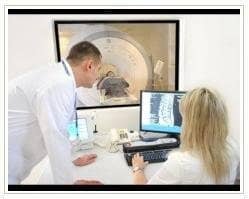
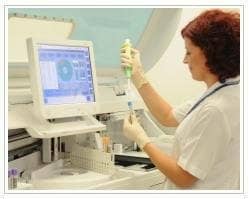
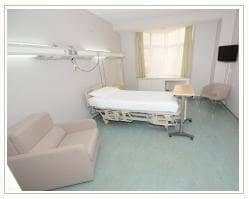
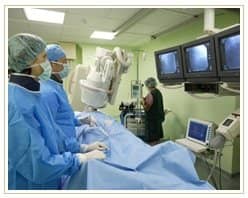
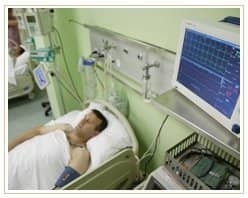
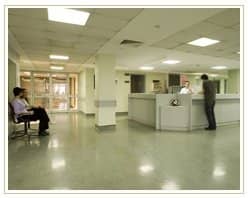
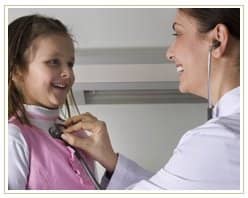
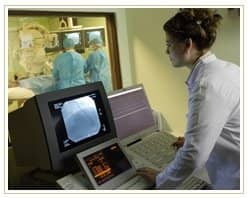
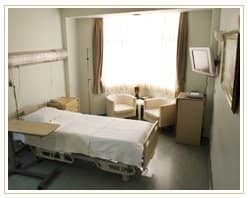
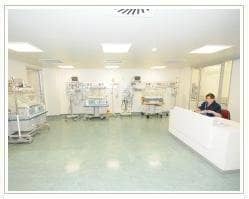










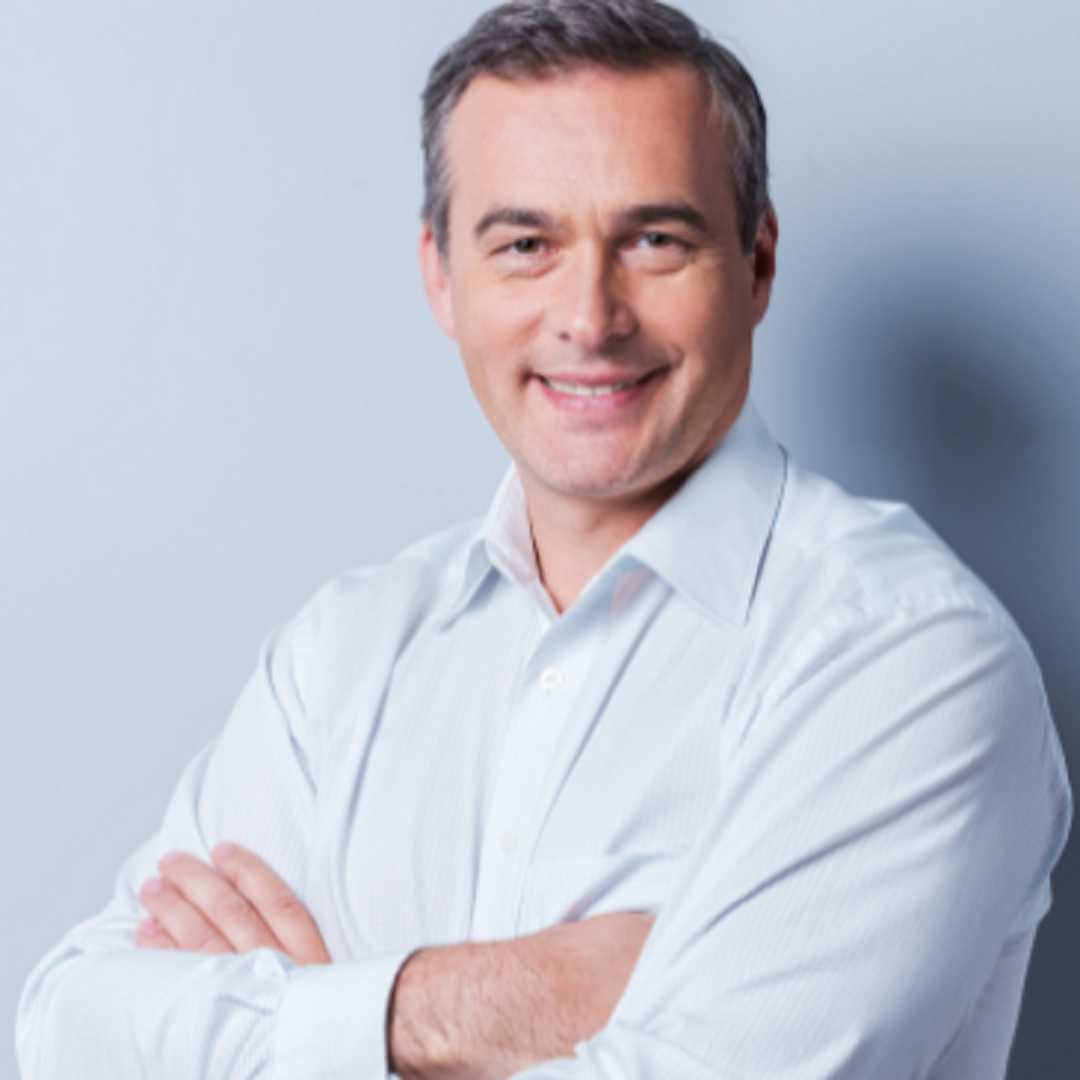



.png)
.png)
.png)

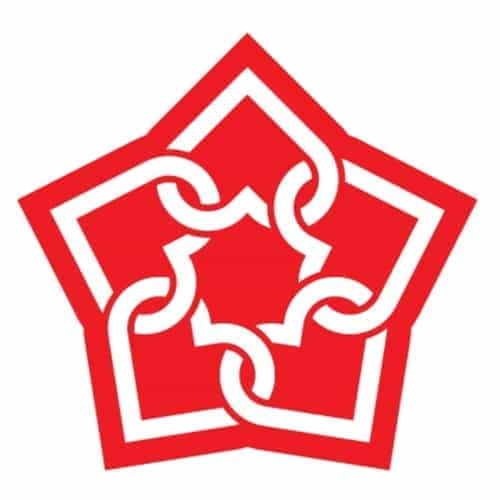

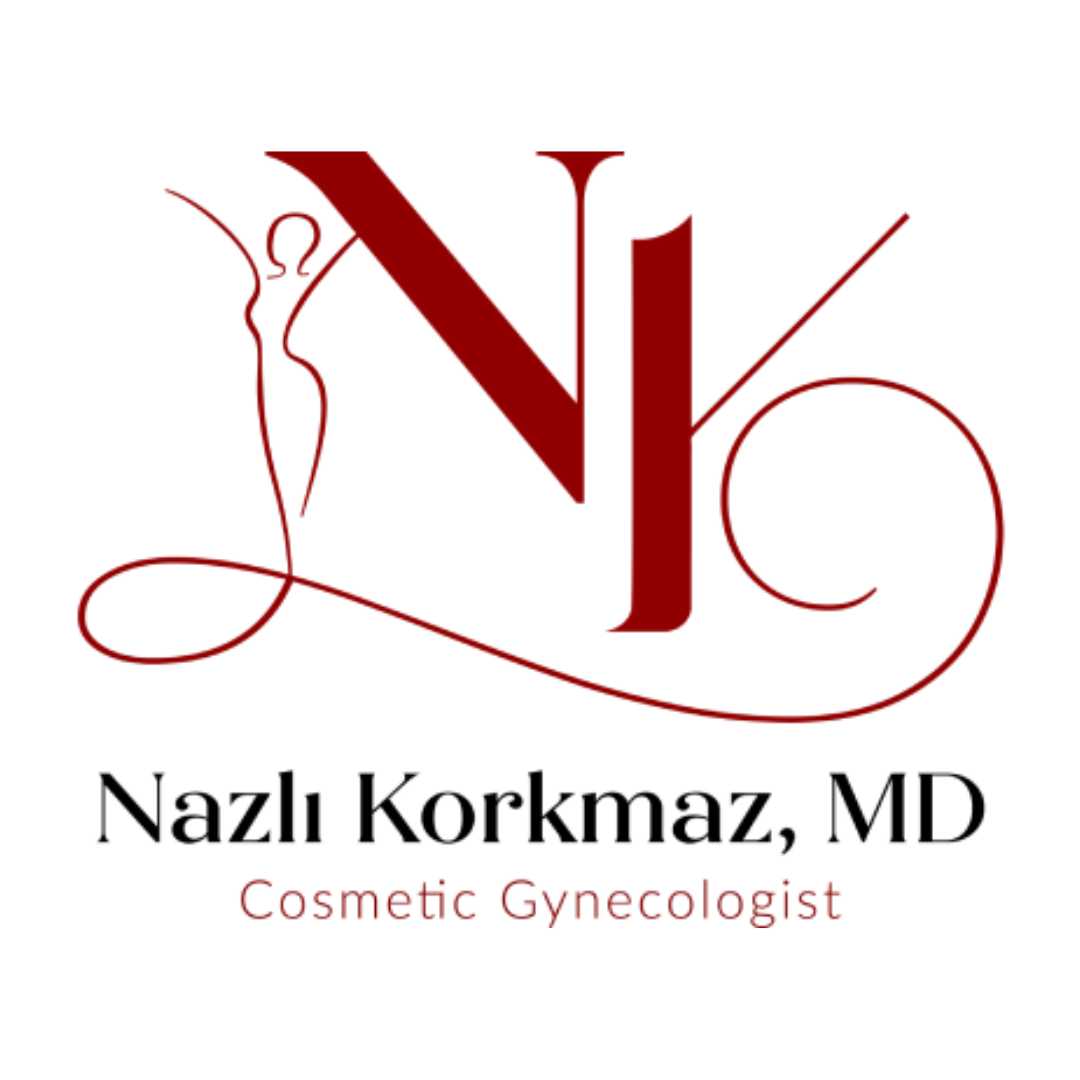



Share this listing